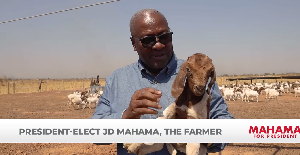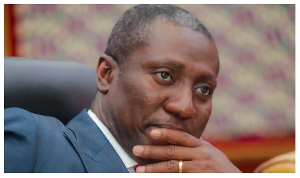Nepad begs for more cash
African leaders meeting in Egypt on Tuesday begged for cash ahead of July's G8 summit, but poor attendance showed tepid faith in the continent's ability to achieve the stability and transparency meant to underpin the meeting.Egyptian President Hosni Mubarak, hosting the summit of the New Partnership for Africa's Development (NEPAD) at the Red Sea resort of Sharm el-Sheikh, urged donors to boost their contributions.
Deliver on pledges
"We stress the paramount necessity for our partners in development to deliver on their pledges," he said in his opening speech.
The report of the organisation's activities over the past year and its recommendations for the following, stressed the continent would need another $50 to $75-billion in aid if it was to reach the United Nations' millennium goal of reducing global poverty by half by the year 2015.
The document presented to the leaders of some 30 African countries asked Nepad's steering committee to urge the Group of Eight leading industrialised countries in the world to double aid in the short term and improve its coordination and distribution.
Nepad funding
The current level of funding for Nepad stands at $10-billion a year for cross-border infrastructure projects and the same amount to speed up the streamlining of African institutions.
The report urged the G8, whose next meeting is slated for July in Scotland, to propose a timetable for scrapping subsidies to specific countries and offer a mechanism enabling African products to penetrate the European market.
Nepad is an African initiative created in 2001 and aimed at revitalising the country's ailing economy by attracting private investors with progress in conflict-resolution and improved transparency.
Peer Review Mechanism
The main novelty at this year's summit was expected to be the first report of the Peer Review Mechanism, aimed at improving governance among African countries.
"These years... have resulted in concrete progress in resolving existing conflicts on the continent and creating the climate for achieving peace and development, and taking serious steps towards consolidating good governance within a purely African framework under the umbrella of the PRM," Mubarak said.
"The formation of this mechanism and the beginning of its activities within a record time reflect the adherence of the peoples of the continent and its leaders to the values of democracy and human rights," he said.
This year's issue of the PRM report was due to focus on the performance of Ghana, Rwanda, Mauritania and Kenya, yet none of these four states despatched their president, keeping representation at minister level.
Anti-Nepad comment
NEPAD was still reeling from the scathing comment made at last year's summit by Senegalese President Abdoulaye Wade, one of the body's founding members.
"I have great difficulties explaining what we have achieved when people at home and elsewhere ask me that question," he said in Johannesburg.
He claimed nothing had been achieved in eight key sectors, including health, agriculture, health, education, infrastructure, information technology and telecommunications and science and technology.
Thabo Mbeki absent from meeting
Wade was absent from the Sharm el-Sheikh gathering, as was co-founder Thabo Mbeki, the South African president, who preferred to set his sights on cooperation with Asia ahead of a summit in Jakarta.
The Asia-Africa summit would "offer the possibility for African and Asian countries to come together and indeed to form that strategic partnership," he said after talks in Indonesia.
With the much-touted, home-grown, name-and-shame mechanism off to a stuttering start, the crisis in Darfur also loomed large over the Nepad summit.
Efforts to rekindle a dialogue between Khartoum and the rebels were discussed in two separate mini-summits.
Darfur a major test
Darfur was seen as a first major test of the continent's conflict-resolution capacity, but the African Union troops despatched in the war-torn western Sudanese region have lacked political support to make an impact.
In its assessment of activities over the past year, Nepad nevertheless hailed some achievements, including in the field of technological development.
Last year a study by the Switzerland-based World Economic Forum said that most sub-Saharan countries were worse off economically today than they were directly after decolonisation.
Per capita gross domestic product in sub-Saharan Africa today is $200s lower than in 1974, it said.



















